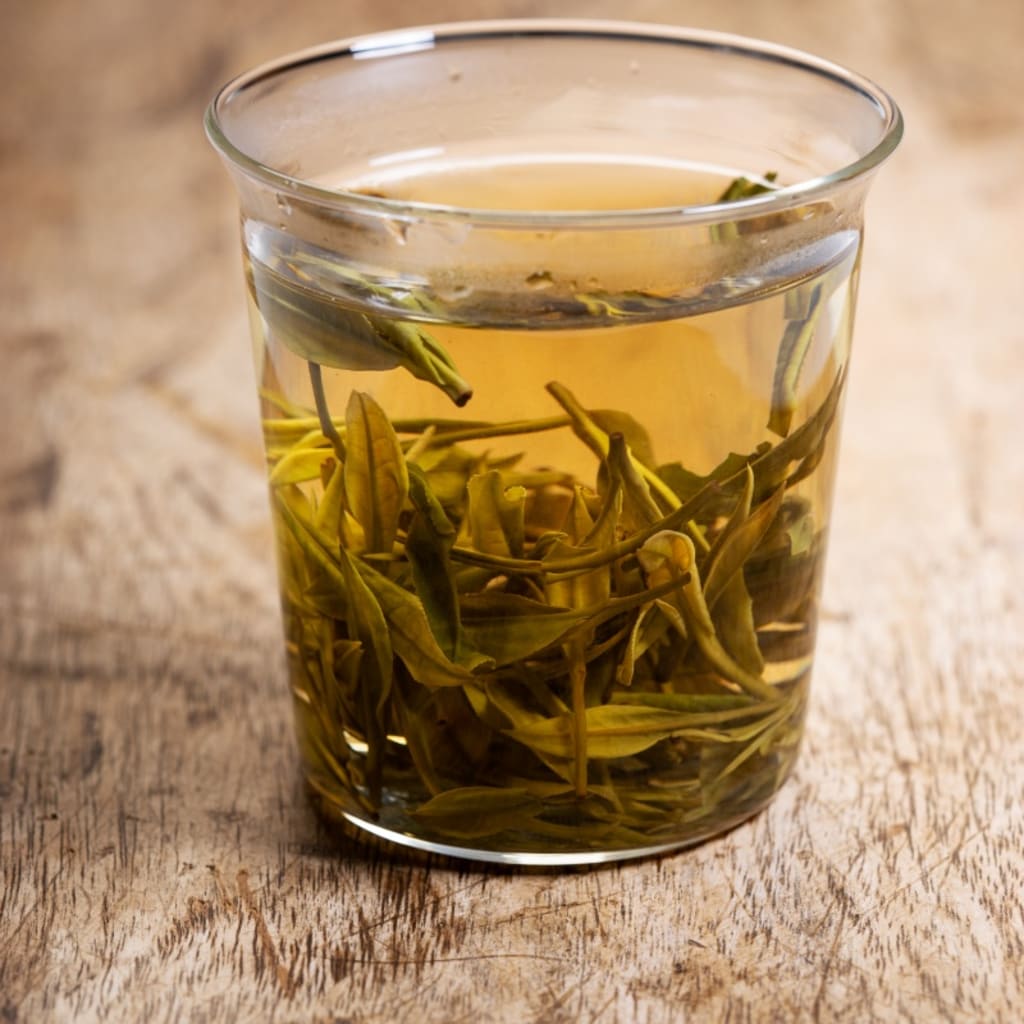Why does drinking tea make my mouth dry?
How to avoid this?

1. What are the feelings of dry mouth sipping tea?
Drinking tea can make the mouth feel dry. That in your mouth was removed, and your throat is dry and tight after swallowing, making it necessary to sip a glass of water to replenish the area.
It could be accompanied by a mild sensation of warmth as it is a sign that the body's regulation of water has temporarily gone off the rails. The dry mouth sensation may be a long time-consuming experience and cause you want to drink more water. It's more pervasive and noticeable than just being thirsty.
2. Why is drinking tea making my lips dry?
2.1 Issues with tea manufacturing and production
There are issues that could arise in the process of making and processing the tea leaves. For instance, insufficient firing or a high temperature of fermentation during the heaping process could cause abnormal substances and within water can within the unusual content leaves that cantemperatures result in dryness in the tea when consumed. For instance: moisturizing
Changes in the contents and form of tea polyphcontentenols
Unusual content or the properties of alkaloids like caffeine
An increase in Aldehydesand ketones
2.2 Incorrect brewing method
The excessive heat of the water can cause certain undesirable chemicals in tea leaves. These substances can cause tea leaf to release quickly and in large amounts that cause dryness.. This can be caused by:
Tannic acid Tannic acid that is too high can cause an increase in astringency the mouth, causing dryness.
Decomposition of the products of certain aromatic substances The high temperature of water can cause certain initially delightful aromatic substances to break down into unpleasant elements, which can cause discomfort for example, dryness.
2.3 Poor tea quality
If tea leaves are damaged, contaminated damaged, degraded, or in poor condition it could cause discomfort such as dryness. When the leaves become damaged during storage because of inadequate environmental conditions like mold and dampness harmful substances like mycotoxins could be able to grow inside tea leaves.
Consuming tea that is spoiled may cause dryness, but it can could also cause stomach pain as well as other symptoms. Additionally, tea leaves of low quality could be made of low-quality raw materials or rough processing methods, which result in unfavorable chemical compounds or impurities that are present in the tea leaves. Tea leaves may also cause dryness and uncomfortable sensations including an unpleasant smell and tight throat.
2.4 Physical constitution of an individual
Certain physical aspects of an individual are not to be overlooked. Certain people might feel more sensitive certain components of tea leaves as well as more prone to experiencing symptoms like drying. For example, certain people might possess a more sensitive or specific constitution and display an increased reaction to specific elements within tea leaves.
For instance, certain individuals may be at risk of the caffeine found from tea leaves. Even if they don't consume large amounts it is possible to experience adverse reactions like dryness, fast heartbeats, and insomnia as a result of these effects. Other people might be sensitive to certain aromatic substances or other chemicals found in certain teas. If they consume such teas, they may suffer from dryness, throat irritation or even minor allergic reactions like itching of the skin and itchy rash.
Additionally physical weakness, some have a poor digestive function or are in particular physiological phases, for example breastfeeding and pregnant women. Due to their physical structure they are more likely to feel discomfort for example, dryness, after drinking tea. This could be due to the fact that their bodies are less effective in metabolizing and adapting the tea's ingredients.
2.5 Matching teas with other food items
It could be linked to other food items eaten in the same time. Certain foods may react with tea, causing dryness.
If you drink teatime could trigger complicated chemical reactions or interplays in the body that could result in a feeling of dryness. unusual
Certain foods, such as unripe fruit may be sour and stringent. If they contain a strong astringency their own, they enter the body with tea. They can interact with tea leaf's components and block the release of saliva of saliva, and cause dryness.
Additionally, certain high protein foods, like eggs and meats, could cause dryness, or discomfort when combined with certain kinds of tea because of changes in digestion. The exact conditions under which certain foods interact with other kinds of tea and cause dryness could also differ according to the specific nature of the food, tea as well as the individual's physical health.
2.6 Impact of the Tea Drinking Environment
Drinking tea in hot and dry conditions can make you feel dry. When in a dry environment the moisture content of the air is reduced which could accelerate the process of evaporating moisture in the mouth. Even if tea is normal and dry, the environment's lack of moisture makes it hard to keep the mouth in its normal moisture level which makes it more likely to experience dry mouth. This is also true in conditions with high temperatures. Temperatures that are high could cause the body to sweat more frequently, resulting in an increase in the loss of body water. This is when saliva in the mouth will diminish. Alongside drinking tea and experiencing dry mouth, this feeling can be made worse. In particular, during the summer heat drinking tea inside with no appropriate moisturizing or cooling measures, or outside in dry and hot areas is more likely to feel dry than when in an ambient temperatures or humid conditions. Furthermore, the effect of these environmental influences could persist. Even after a pause in drinking tea, the sensation of dry mouth could require a few minutes to ease since the body has to replenish its water supply and adapt to a more healthy state.
3. How to Avoid Dry Mouth When Drinking Tea?
Choose tea that is of the highest quality.
Make tea properly
Do not eat certain foods at tea time.
Avoid eating food items that could affect tea and cause temperatures. For example, salty, spicy high-protein or astringent food items. feel foods alsoDrinking
Consume lots of vegetables and fruits as they can help keep your body water-logged.
Be aware of the body's sensitivity to caffeine.
If you're hypersensitive to caffeine, you should avoid drinking tea with caffeine completely.
Limit your consumption to a couple of cups a day if you take tea that contains caffeine.
Enjoy tea in a relaxing and humid atmosphere.
Tea drinking habits that are healthy
Follow these steps and you'll enjoy your tea without having dry mouth.
Author: Cary Woo
Cary Woo has been working in the tea industry for over 10 years and has run a tea house for over 6 years, serving thousands of tea enthusiasts each year. He has a deep passion for various types of Chinese tea and is spicy foods also the operator of . ForOrientaleaf. He advocates for Orientaleaf's business philosophy: "We only sell tea that we have personally enjoyed and believe to be of high quality." He hopes to make the beauty of Chinese tea accessible to tea enthusiasts worldwide through simple means.
About the Creator
Enjoyed the story? Support the Creator.
Subscribe for free to receive all their stories in your feed. You could also pledge your support or give them a one-off tip, letting them know you appreciate their work.





Comments
There are no comments for this story
Be the first to respond and start the conversation.